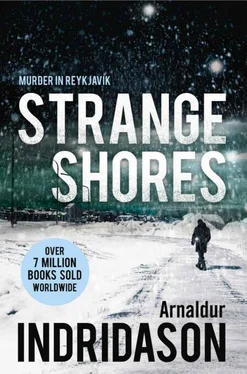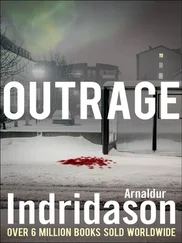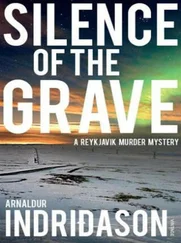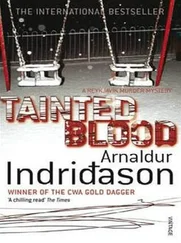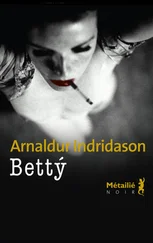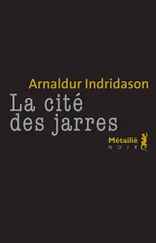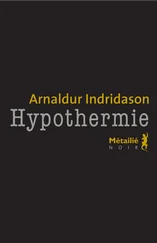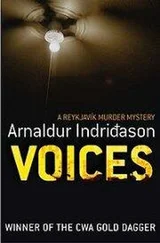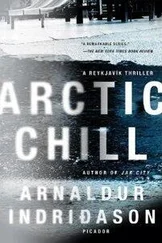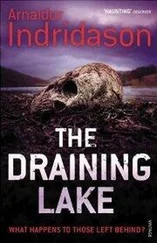Arnaldur Indridason - Strange Shores
Здесь есть возможность читать онлайн «Arnaldur Indridason - Strange Shores» весь текст электронной книги совершенно бесплатно (целиком полную версию без сокращений). В некоторых случаях можно слушать аудио, скачать через торрент в формате fb2 и присутствует краткое содержание. Год выпуска: 2013, Издательство: Random House, Жанр: Полицейский детектив, на английском языке. Описание произведения, (предисловие) а так же отзывы посетителей доступны на портале библиотеки ЛибКат.
- Название:Strange Shores
- Автор:
- Издательство:Random House
- Жанр:
- Год:2013
- ISBN:нет данных
- Рейтинг книги:4 / 5. Голосов: 1
-
Избранное:Добавить в избранное
- Отзывы:
-
Ваша оценка:
- 80
- 1
- 2
- 3
- 4
- 5
Strange Shores: краткое содержание, описание и аннотация
Предлагаем к чтению аннотацию, описание, краткое содержание или предисловие (зависит от того, что написал сам автор книги «Strange Shores»). Если вы не нашли необходимую информацию о книге — напишите в комментариях, мы постараемся отыскать её.
Strange Shores — читать онлайн бесплатно полную книгу (весь текст) целиком
Ниже представлен текст книги, разбитый по страницам. Система сохранения места последней прочитанной страницы, позволяет с удобством читать онлайн бесплатно книгу «Strange Shores», без необходимости каждый раз заново искать на чём Вы остановились. Поставьте закладку, и сможете в любой момент перейти на страницу, на которой закончили чтение.
Интервал:
Закладка:
‘Where’s Beggi?’
‘He wasn’t with you,’ she replied. ‘We’re searching the area where they found you.’
‘Hasn’t he come home?’
His mother shook her head.
It was then that he went berserk. Reared up and fought to get out of bed while she tried to hold him down. This only made him more determined and he succeeded in tearing himself from her grasp and running out into the passageway, straight into the doctor and the two men who had carried him down to Bakkasel. Despite his frenzied struggles they hung on to him, trying to talk sense into him, to calm him. His mother clasped him in her arms and explained that a large group was out looking for his brother Bergur; he would soon be found and all would be well. Ignoring her, he bit and scratched, straining to reach his boots and anorak. When they prevented him from going outside he lost his head completely. In the end the doctor had no choice but to sedate him.
‘Can you give us any clues about Beggi?’ his mother asks again as he lies in bed, too weak to resist any more. ‘It’s urgent, darling.’
‘I was holding Beggi’s hand,’ he whispers. ‘I held on to it as long as I could, then suddenly he wasn’t there any more. I was alone. I don’t know what happened.’
‘When? At what point?’
He senses the effort she is making to maintain her composure, in spite of the terrible strain. She has recovered two out of three alive from the storm but the thought that Beggi might be lost is unendurable.
‘I don’t know,’ he says.
‘Was it still light?’
‘Yes, I think so. I don’t know. I was so cold.’
‘Have you any idea which way you were heading? Were you going uphill or down?’
‘No, none. I kept falling over and everything was white and I couldn’t see. I remember Dad saying we must turn back at once. Then he vanished.’
‘That was more than twenty-four hours ago,’ his mother tells him. ‘I’m going back up to the moors, dear. They could do with more helpers. You rest. It’ll be all right — we’ll find Beggi. Try not to worry too much.’
The drug is taking effect and his mother’s words soothe him a little. He falls asleep and for several hours is dead to the world. When he stirs again it is strangely quiet; a sinister silence has fallen on the house. He feels as if he is waking from a long, harrowing nightmare but understands at once that this is wrong; he has a sudden vivid memory of the events of the last thirty-six hours. Still groggy from the sedative, he climbs out of bed and staggers into the passage. The door to his parents’ room is shut. When he opens it, he finds his father alone on the edge of the bed. He doesn’t see the boy but sits motionless, his head sunk on his chest, hands in his lap. Perhaps he is asleep. The room is dark. He doesn’t know of his father’s terrifying ordeal; how he crawled the last few metres to Bakkasel on hands and knees, frostbitten, hatless and almost out of his mind after his battle with the elements.
‘Aren’t you out looking?’ he asks.
His father doesn’t answer, just stares down at his lifeless hands. Moving closer, he puts a hand on his father’s knee and repeats his question. His father seems to have aged many years: the lines in his face have deepened, the light in his eyes has been extinguished, leaving them cold, remote and indifferent. He has never seen his father so far gone before, so desolate and alone, as there in that shadowy room. He stands before him, filled with dread and horror, and offers up the feeblest excuse of all:
‘I couldn’t help it,’ he whispers. ‘I couldn’t help it.’
7
Erlendur found Ezra outside in a shed that stood diagonally down the slope from his house. After knocking in vain at his front door, Erlendur had followed the sound of hammering to a ramshackle shelter with slatted sides, built from offcuts of timber and corrugated iron. The door, from which hung a piece of string to fasten it, was standing ajar when Erlendur approached, revealing a bowed figure sitting on a stool with a heavy mallet in his hand. Ezra had placed a fillet of dried haddock, or hardfiskur , on a grimy stone slab and, holding it by the tail, was beating it rhythmically to tenderise the flesh, sending up a puff of crumbs with each blow. The old man did not look up from his task or notice Erlendur, who waited in the doorway, watching him work. Drips kept forming at the end of Ezra’s nose and every now and then he wiped them away with the back of his hand. He was wearing woollen mittens with double thumbs, an oversized leather hat with ear flaps that covered his cheeks, brown overalls and a traditional Icelandic jumper. A straggly beard sprouted from his unshaven jowls and he was muttering under his breath through a swollen lower lip, scarred from an ancient injury. His eyebrows jutted in tufts over small, grey eyes that seemed to be perpetually watering. Ezra was certainly no looker: his face was abnormally wrinkled, with a massive, powerful chin and fleshy nose, yet he had obviously once been a man of presence.
When he finally took a rest from beating the fish, he glanced up and saw Erlendur standing in the doorway.
‘Have you come to buy hardfiskur ?’ he asked in a hoarse, threadbare voice.
‘Have you got any to spare?’ Erlendur felt as if he had briefly stepped back into the nineteenth century.
‘Yes, a little,’ Ezra replied. ‘Some of this is headed for the shop but it’s cheaper to buy direct from me.’
‘Is it good?’ Erlendur asked, moving closer.
‘I should say so,’ said Ezra, his voice gaining strength. ‘You won’t find better anywhere in the East Fjords.’
‘You still use a mallet?’
‘For small quantities like this it’s not worth investing in machinery. Anyway, there’d be no point as I’m bound to kick the bucket any day now. I should have gone a long time ago.’
They agreed on an amount and exchanged small talk about the weather, the fishing season and, inevitably, the dam and smelter — a subject that clearly bored Ezra.
‘For all I care they can destroy the environment,’ he said.
Hrund had told Erlendur that Ezra had always been a recluse, never married or had children — at least not as far as she knew. He had lived in the village for longer than the oldest residents could remember, largely keeping himself to himself and respecting other people’s privacy. He had done a variety of jobs on land and sea, mostly working in solitary occupations. Recently he had slowed down a bit; it was unsurprising, given that he was nearly ninety. Well-meaning neighbours wanted him to go into a home but he was having none of it. Ezra had no qualms about discussing his imminent death with all and sundry, and gave the impression that he looked forward to meeting his end. He had been trotting out the same old excuse for putting things off for years — that he would die soon, so it would all be a waste of time. Hrund said it was the oddest form of apathy she had ever come across.
Erlendur gradually steered the conversation round to tales of ordeals in the wilderness as Ezra resumed his pounding of the hardfiskur .
‘I’ve been doing a bit of research into stories about people who’ve got into difficulties in the mountains around here.’
‘Oh yes?’ said Ezra. ‘Are you a historian?’
‘No, it’s just a hobby really,’ Erlendur replied. ‘I was reading about the British servicemen who were planning to cross the Hraevarskörd Pass. I suppose that would be, what, more than sixty years ago now?’
‘I remember it well,’ said Ezra. ‘I met some of them. Fine lads. They got caught in a freak storm. Some of them died but they were all found in the end, dead or alive. Which is not always the case, I can tell you.’
Читать дальшеИнтервал:
Закладка:
Похожие книги на «Strange Shores»
Представляем Вашему вниманию похожие книги на «Strange Shores» списком для выбора. Мы отобрали схожую по названию и смыслу литературу в надежде предоставить читателям больше вариантов отыскать новые, интересные, ещё непрочитанные произведения.
Обсуждение, отзывы о книге «Strange Shores» и просто собственные мнения читателей. Оставьте ваши комментарии, напишите, что Вы думаете о произведении, его смысле или главных героях. Укажите что конкретно понравилось, а что нет, и почему Вы так считаете.
